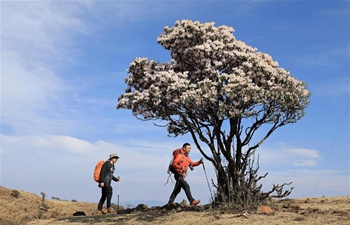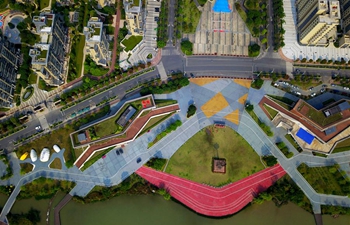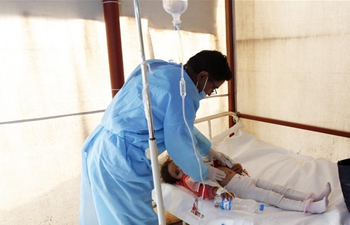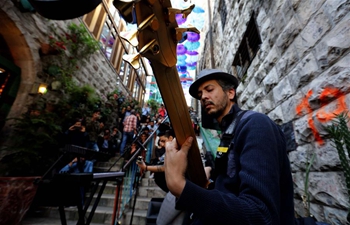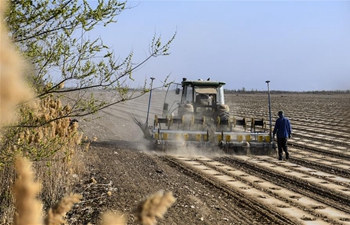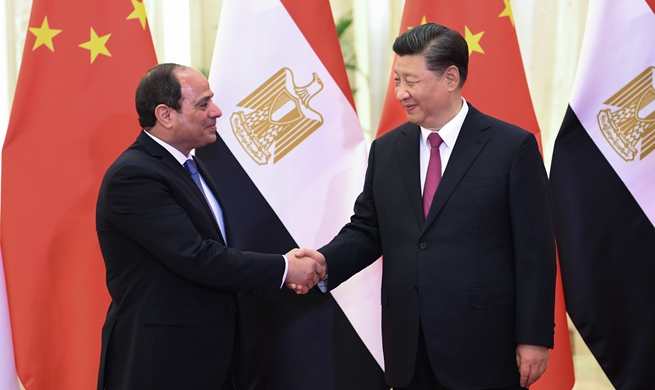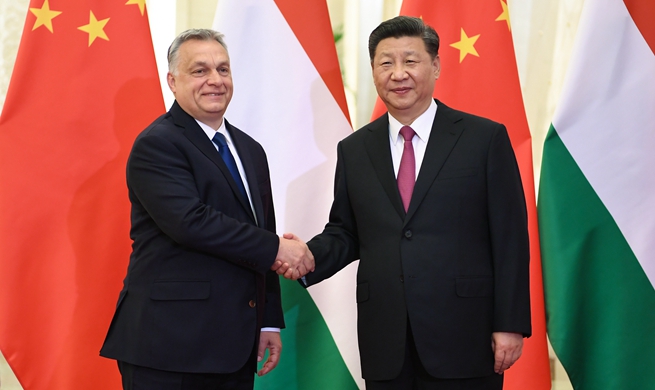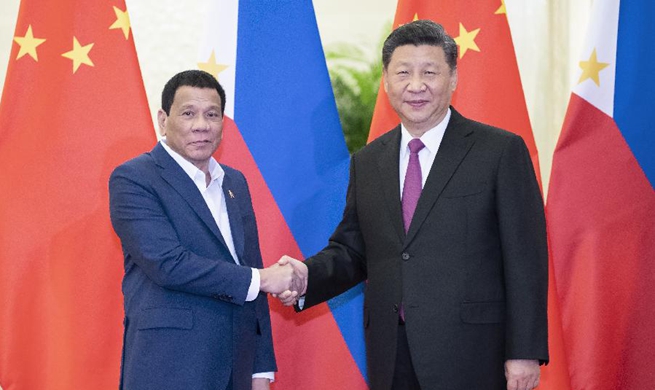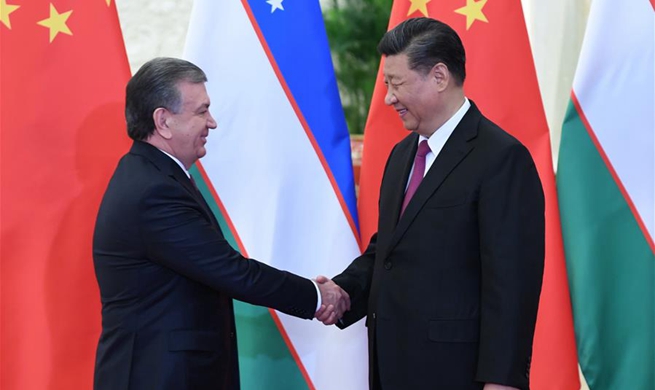by Olatunji Saliu
ABUJA, April 25 (Xinhua) -- Hundreds of Nigerians embarked on a long walk in the capital Abuja on Thursday to campaign for the elimination of malaria in the country.
The long trek, also involving children and senior government officials, was organized by the health ministry and several civil societies as part of activities commemorating the World Malaria Day, which is marked every year on April 25 across the world.
The trekkers endured the scorching sun to educate their fellow citizens of the West African country on ways to eliminate the malaria scourge.
"Zero Malaria Starts With Me" is the theme for this year's World Malaria Day.
Malaria is a life-threatening disease transmitted to people through the bite of infected female Anopheles mosquitoes. Once bitten, the infected person starts to show such symptoms as fever and headaches.
If left untreated, the disease can result in severe anemia, respiratory distress, multi-organ failure or even cerebral malaria.
Malaria is still a public health challenge in Nigeria, Africa's most populous country. The country accounts for 25 percent of the global malaria burden, according to the World Malaria Report.
"We also account for 19 percent of deaths from malaria," said Isaac Adewole, the minister of health.
In a report, the World Health Organization (WHO) called for urgent action to get the global response to malaria back on track, stressing that ownership of the challenge lies in the hands of countries most affected by malaria.
Although funding for malaria control has remained relatively stable since 2010, Adewole said, Nigeria needs more money to achieve the target of cutting malaria prevalence and mortality rates to at least 40 percent by 2020.
The commemoration of the World Malaria Day, according to the minister, provided the right opportunity for a review of strategies being used and raising the tempo with a view to significantly reducing the burden of malaria in the country.
While urging development partners to double efforts at resource mobilization in support of malaria elimination, the official said, there is an urgent need for private-sector operators to also commit more resources to supporting the fight against the disease.
"The huge resources required to combat malaria could only come from the government, its partners, and the private sector," he said.
Speaking on the efforts of the government toward eliminating the disease in Nigeria, the minister noted a number of innovative programs have been developed to increase access to funds.
Among such programs aimed at speeding up the elimination of the disease in the country are the Basic Health Care Provision Fund and the Save One Million Lives project.
"We are asking for additional funding support for the malaria program," Adewole said, adding that Nigerian President Muhammadu Buhari in 2018 approved an incentive funding of 18.5 million U.S. dollars for the procurement of Long Lasting Insecticidal Treated Nets (LLIN).
In addition, the Nigerian government is in the process of setting up an expert group of malaria researchers to provide guidance on strategies for malaria elimination.
A Malaria Program Review effort is also underway in the country, and this comprehensive review would inform changes in strategies and interventions where necessary, according to Adewole.
Meanwhile, citizens have more roles to play in kicking out malaria in the country, said local health expert Okechukwu Ossai.
Keeping a clean environment is one of the keys to eradicating malaria in Nigeria, Ossai said in a statement made available to Xinhua in Abuja.
Water receptacles, including empty containers both around the surroundings and in drainages, should be frequently removed so as not to create breeding sites for mosquitoes, he said.
"Stagnant water in drainages allows mosquitoes to breed which increases the risk of malaria in human beings. When waste is properly disposed and drainages are free of waste and without any blockage, malaria and other diseases will be prevented," Ossai said.
Insecticide-treated nets are important for both adults and children to prevent malaria, he said.
Aderinoye Jaiye, another medical expert, cautioned Nigerians on the use of over-the-counter malaria drugs without proper diagnosis.
This has always been the practice by many Nigerian citizens, including educated ones, he said.
"Once any symptom is noticed, it is better to proceed to the hospital to run a test to be sure of what is wrong," he said.
Poverty and ignorance have been major challenges facing the management of malaria in Nigeria, said Lagos-based doctor Sultan Oluwadamilola Lawal.
He said most people do not go to the hospital because they are poor, and some feel it is more expensive to get treatment in hospital than self-medication.
"But people need to understand that self-medicating or staying away from the hospitals leads to complications that will cost more than the initial treatment," he said.
